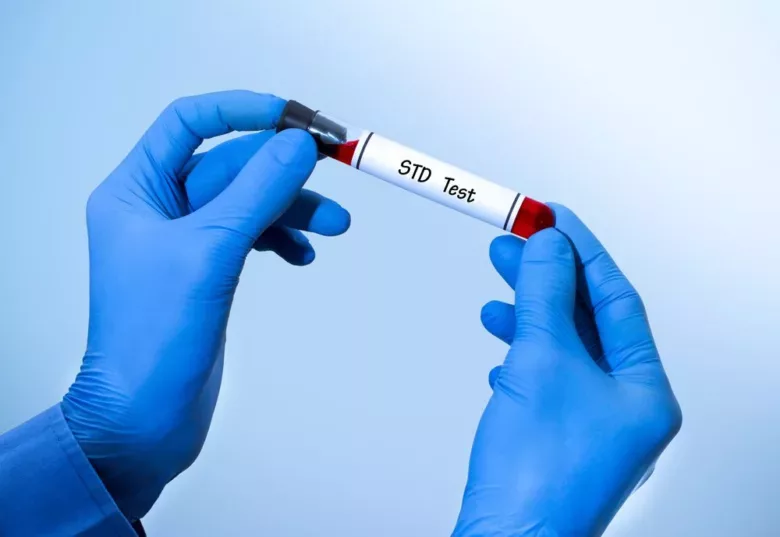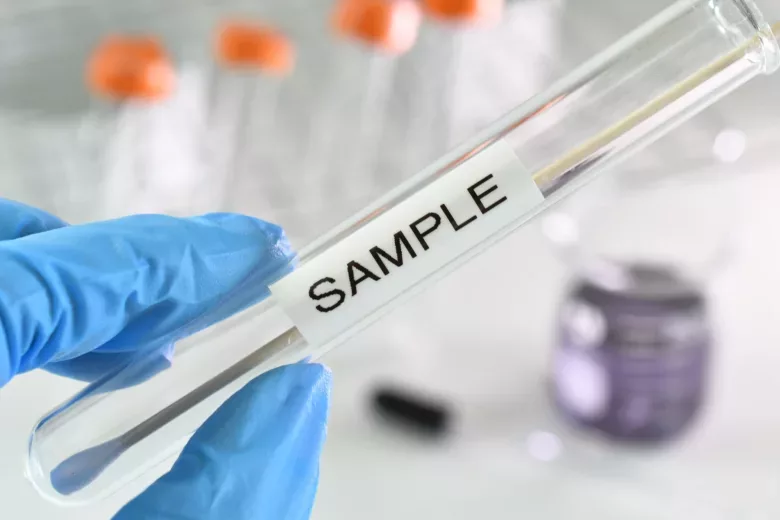The bacterium Treponema Pallidum is responsible for causing Syphilis, which is a sexually transmitted infection (STI). It can spread through oral, anal, or vaginal intercourse with an infected individual. Syphilis is a serious disease that can lead to severe complications if left untreated. STD testing methods for Syphilis include blood tests, spinal fluid analysis, and visual examination of sores. Syphilis can also be detected through routine blood tests, and early diagnosis and treatment are crucial in preventing long-term health problems.
Is Syphilis detectable by a routine blood test?
Yes, Syphilis can be detected in a routine blood test. The most common blood test used to detect Syphilis is the Treponemal-specific test. This test looks for the presence of antibodies produced by the immune system in response to the T. Pallidum bacteria. If these antibodies are detected, it indicates that the person has been exposed to the bacterium and has Syphilis.
Another type of blood test is the Non-treponemal test, which looks for substances produced by the body in response to the infection. This test can be used to monitor treatment but is less specific than the Treponemal-specific test.
Not all STI screenings include Syphilis testing, so it’s important to ask your healthcare provider to include a Syphilis test if you’re concerned about your risk.
What are the signs and symptoms of Syphilis in a man?
Syphilis is a common male STD and can be divided into four stages: primary, secondary, latent, and tertiary. Each stage has its own set of symptoms and complications.
- The primary stage of Syphilis is characterized by the appearance of a sore or lesion, known as a Chancre. The sore is usually painless and can last for several weeks. It’s important to note that not all people with Syphilis will experience a Chancre.
- Post the primary stage, Syphilis progresses to the secondary stage. The secondary stage of Syphilis typically begins a few weeks after the Chancre heals. Symptoms in this stage can include a rash on the trunk, hands, and feet, fever, muscle aches, sore throat, and swollen lymph nodes. These symptoms may come and go over several weeks or months.
- Latent Syphilis is a stage where there are no apparent symptoms, and it can last for years. However, the bacteria are still present in the body, and the infection can progress to the tertiary stage.
- The tertiary stage of Syphilis is the most severe and can lead to serious health problems. This stage can occur years (10 to 30 years) after the initial infection and can cause damage to the brain, nerves, eyes, heart, blood vessels, liver, bones, and joints. Symptoms can include difficulty coordinating movements, paralysis, blindness, and dementia.
Treatment options for Syphilis
Routine blood tests can be used to diagnose Syphilis, and the treatment options for Syphilis may include antibiotics such as Penicillin. The type and duration of treatment depend on the stage of the infection.
In the early stages, a single injection of Penicillin is usually sufficient to cure the infection. In some cases, multiple injections may be required, especially if the infection has progressed to the secondary stage. In the late stages, however, treatment may be more complicated and may require hospitalization.
After treatment, individuals should get retested to ensure that the infection has been completely cured. It is also important to abstain from sexual activity until the infection has been completely cured to avoid reinfection or spreading the infection to others.
How to prevent Syphilis
Here are some steps you can take to prevent Syphilis:
- Get tested regularly: If you are sexually active, it is important to get tested for Syphilis and other sexually transmitted infections regularly, even if you are not experiencing any symptoms.
- Avoid high-risk behaviors: Engaging in high-risk sexual behaviors, such as having unprotected sex, can increase the risk of contracting Syphilis.
- Consider Pre-Exposure Prophylaxis (PrEP): PrEP is a medication that can be taken daily to reduce the risk of contracting HIV. While it does not protect against Syphilis, it can help reduce the risk of contracting other sexually transmitted infections.
Choose Affordable Rapid Testing for STD testing urgent care of Syphilis.
The Syphilis tests offered at Affordable Rapid Testing are highly sensitive and accurate, and results are typically available within 24-48 hours. Affordable Rapid Testing, Arizona accepts walk-in STD testing options, and individuals can choose from a range of payments. To learn more about their services, check out their website.


